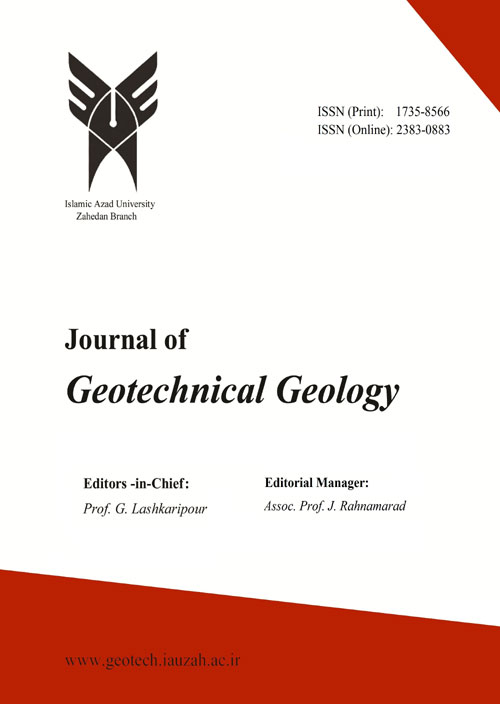Application of the Q-slope classification system for slope stability assessment of the south flank of the Assalouyeh anticline, South Pars Zone
Application of empirical rock-slope engineering classifications to the stability assessment of rock slopes is considered a basic rule that is obeyed by most of the geological engineers around the world. Some of these classification methods that are applied for special design and assessment in geo-structures such as: slope stability, mining activities, excavation, road/railway cutting, etc. are effectively used for reinforcement. The Q-slope classification system which is developed to describe is continuous rock-slope conditions is used for engineering judgment regarding slope stability. This work is focused on the Assalouyeh anticline’s south side which is located in the South Pars Zone (SPZ) in southern Iran. According to the results of the study on 55slopes in the SPZ and implementation of the Q-slope system, a major part of the slopes in terms of sustainability possess critical/uncertain conditions (25 cases), 10 slopes are considered as unstable and 20slopes are classified as stable.
-
Effect of crude oil on the dispersivity of fine-grained soils (Case study: soils of Arak Shazand refinery zone)
Roghayeh Hasani, Ebrahim Asghari-Kaljahi*, Sina Majidiana
Journal of Engineering Geology, -
Effect of petroleum on the physical and mechanical properties of fine-grained soils of Arak Shazand refinery area
Roghayeh Hasani, Ebrahim Asghari-Kaljahi *, Sina Majidian
Journal of Civil and Environmental Engineering University of Tabriz,



